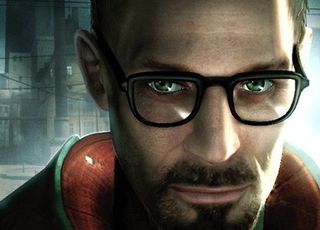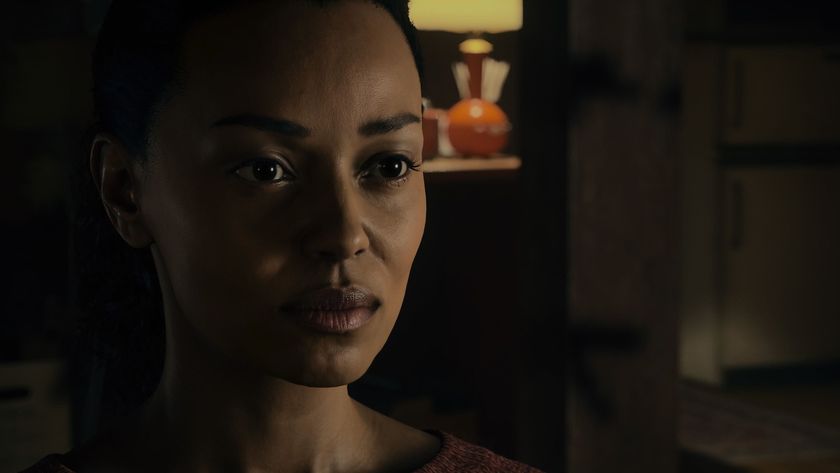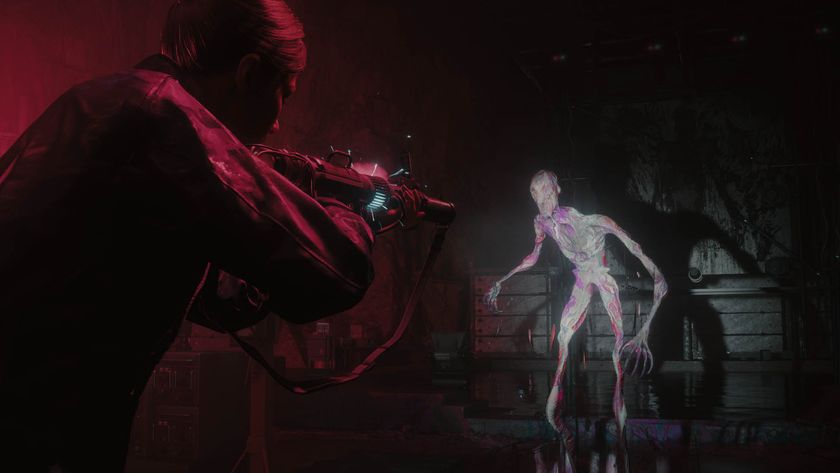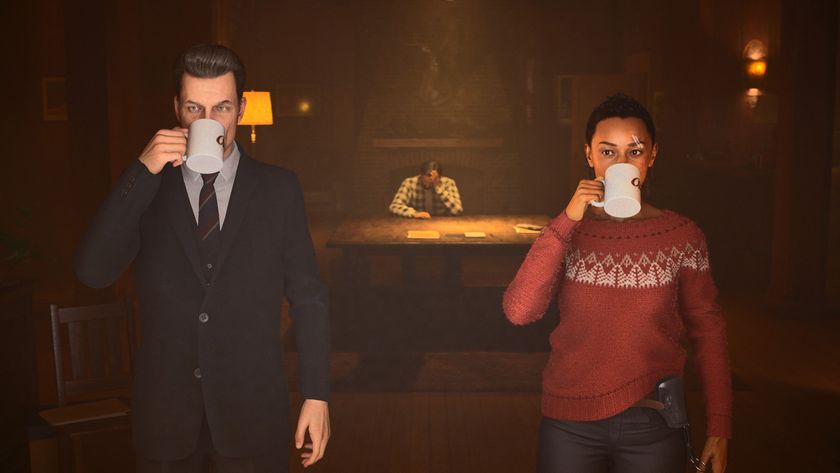Why Alan Wake has the best video game story-telling in years
Why the writer's literary quest is a big jump for video game narrative
It's hard to do well though. In fact most games make a total pig's ear of it. Mainly it's due tothe thinking that once a plot is written, the job is done. But that's not the case in games. With so much potential for telling stories in new ways, you have to really think about how you're going to present that plot if you're going to move the medium forward. In Alan Wake, Remedyhave clearly thought very carefully about that, and as a result they've come up with a stunner. Read on and I'll tell you why. Though be warned. Mega-spoilers ahead.
An old problem solved
For all of the massive story-telling possibilities in games, one problem with the medium keeps turning up to smash thingsapart like a big literary bull in china shop full of delicate characterisation plates. It takes careful thought to keep a player attached to their character.

Above: However long you follow them around, you never really get attached
In books or films, it's easier. Watching or reading is a passive experience. You get to know the characters as people separate from yourself, and empathise with them from the outside. In a game, you are the main character, and anything that divorces you from your connection with them makes your investment in the story fall apart straight away.
You share the journey not only with them, but as them. You're bonded as acombined whole with your character, which is a powerful way to experience a story. But as soon as your character reacts to a situation in a way that you wouldn't, or that you feel is incongruous with the personality you've imbued them with yourself, the wheels come straight off with no hope of repair.

Above: This is not a screenshot. It's a mirror. Though it helps that I have a beard
Valve have always got around this problem admirably by using silent, first-person protagonists. With no dialogue or externally-viewed cutscenes - or externally-viewed anything for that matter - there's nothing to break the sense that you are that character and that character is you. In third-person games though, it's a lot harder. And this is where Alan Wake comes in.
Sign up to the 12DOVE Newsletter
Weekly digests, tales from the communities you love, and more
As a third-person game with a fully-scripted character, the one-to-one immersion of Half-Life obviously wasn't going to work. And with a personal story as Alan's to tell, there's no way it could have been an option. So Remedy have come up with a whole bunch of new techniques to keep you engaged. And they're brilliant.
Inside the writer's head
The problem with the traditional level-cutscene-level structure of games is that you're alternately deprived of and then overloaded with character information. You spend an hour or so unconciously imbuing your character witha personality during the period you're in total control of them, and then suddenly you have no control and a prescribed, separate personality takes over, undoing all of your 'work'. It's incredibly jarring.

Above: Contemplative empathy works better without three-hour cutscenes
Alan Wake get around this not by leaving everything to the player, but by making Alan a complete person throughout every stage of the game. Where most characters are content with a couple of repeated one-liners throughout gameplay sections, Alan's frequent in-game monologues keep you continually topped up on what he's thinking, and more importantly how he's feeling about the things that are happening to him.
While this doesn't make you feel that you are Alan - I'm still not convinced this is at all possible in third-person games - the fact that he reacts to a lot of the big, in-gameplay events that you do, and then ponders the game's spiraling mysteries during quieter periods, mirrors the pattern and pacing of the player's thought processes during the game incredibly well. Thus, Alan is as empathetic and symbiotic as a third-person partner can be, not because you try to relate to him but because he tries to relate to you. But that's just the start.
Over the page: The really clever stuff













The Remedy Connected Universe that ties Alan Wake 2 and Control is "just getting started" with no endgame in sight, says Sam Lake

As Remedy nearly breaks even with Alan Wake 2 sales, Sam Lake tells investors "we strive to create commercial hits" but "we must never lose" the studio's special sauce




